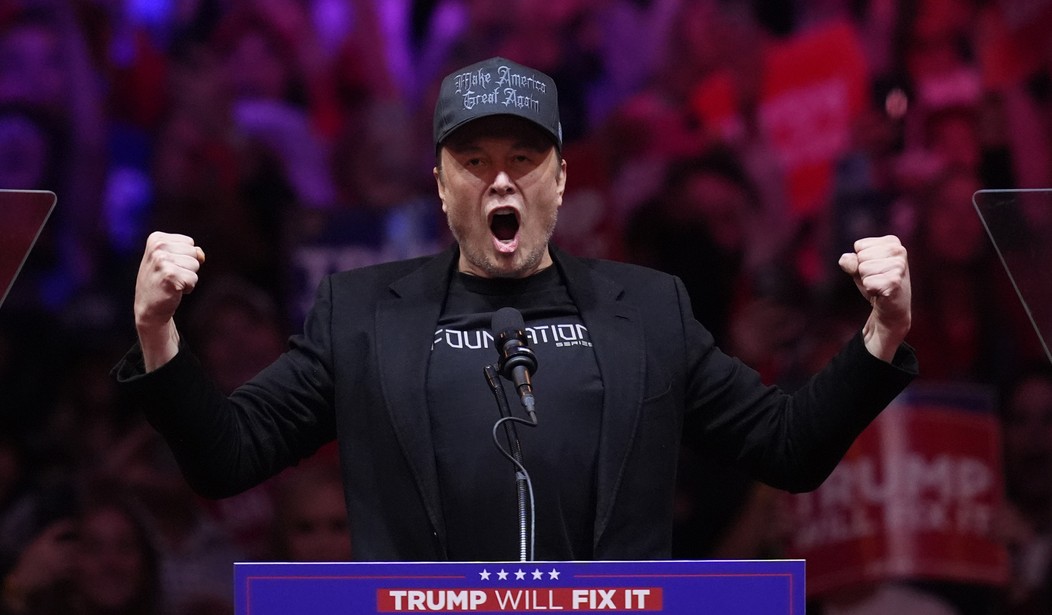In 1982, Ronald Reagan authorized the formation of the Private Sector Survey on Cost Control (PSSCC), commonly referred to at that time as the Grace Commission, named after J. Peter Grace, president of J.W. Grace chemical company.
He told commission members: "Be bold and work like tireless bloodhounds, don't leave any stone unturned in your search to root out inefficiency."
The Grace Commission found: "With two-thirds of everyone's personal income taxes wasted or not collected, 100 percent of what is collected is absorbed solely by interest on the federal debt and by federal government contributions to transfer payments. In other words, all individual income tax revenues are gone before one nickel is spent on the services that taxpayers expect from their government."[
Not much has changed in the 40 years since that was written.
The Commission report was presented to Congress in 1984, and nothing happened. None of its recommendations on spending cuts were adopted. Some of its recommendations on efficiency ended up being implemented, but it saved nothing and cut nothing.
The Department of Government Efficiency (DOGE) could easily end up like the Grace Commission — except the two men heading up the effort have rarely known failure. That the problem has gotten exponentially worse gives more urgency to the efforts of Elon Musk and Vivek Ramaswamy and their partners in Congress to address the debt crisis and our budget woes.
Most of all, the DOGE will succeed because failure is not an option. That's why I'm not going to bet against them.
Yes, there's more hope than reality there. There is nothing so intractable as a congressman guarding his pet spending projects. Put 435 of them together in a room and ask them to cut anything from the budget, and they might get apoplexy debating it.
In 2023, the U.S. government collected a record $479 billion in revenue. How did we run a $1.8 trillion deficit? We spent $617 billion more than the previous year when we ran a $1.4 trillion deficit.
On Friday, the national debt topped $36 trillion. This is just four months after it passed $35 trillion.
Evenly divided, that means every American is now six figures in the red, thanks to the decisions made in Washington, D.C., over the past few decades. The trajectory ahead looks no better. The federal government is on pace to run multitrillion-dollar deficits for the foreseeable future—and that's the rosy scenario, which assumes no recessions, wars, pandemics, and the like. Measured against the size of the U.S. economy, the debt is approaching the record high set in the final year of World War II. The rising debt means higher annual interest payments that will complicate the federal budget, likely require higher taxes, and make everyone poorer.
To my mind, part of the problem is the sheer unreality of these numbers. "It would take nearly $8 trillion in budget cuts merely to stabilize the national debt so it does not grow faster than the economy," writes Reason.com's Eric Boehm.
Obviously, the situation cries out for a new approach. How about crowd-sourcing?
All actions of the Department of Government Efficiency will be posted online for maximum transparency.
— Elon Musk (@elonmusk) November 13, 2024
Anytime the public thinks we are cutting something important or not cutting something wasteful, just let us know!
We will also have a leaderboard for most insanely dumb… https://t.co/1c0bAlxmY0
One big problem as I see is for both men to manage expectations. They have little power beyond using their positions in DOGE as a bully pulpit. And you don't easily bully Congress.
Without the power to enforce its will, the most sincere and ambitious DOGE recommendations will run up against the complete lack of political will in Washington, D.C. to tackle the cost of financially unsustainable entitlement programs, such as Medicare and Social Security, and national defense—programs which make up the majority of the budget. That will allow net interest on the debt the federal government has already run up to consume an ever-growing portion of the federal budget until there's nothing else.
But what other option is there? The Democratic and Republican party platforms both promise to "protect" Social Security and Medicare, and boast of their commitment to a "bigger" military (Republicans) and "historic investments in America's military industrial base" (Democrats). That doesn't leave much room for reining in spending through normal legislative channels. And the stakes are high.
It will be interesting to watch the progress of these two highly successful, motivated men in their efforts to change history.










